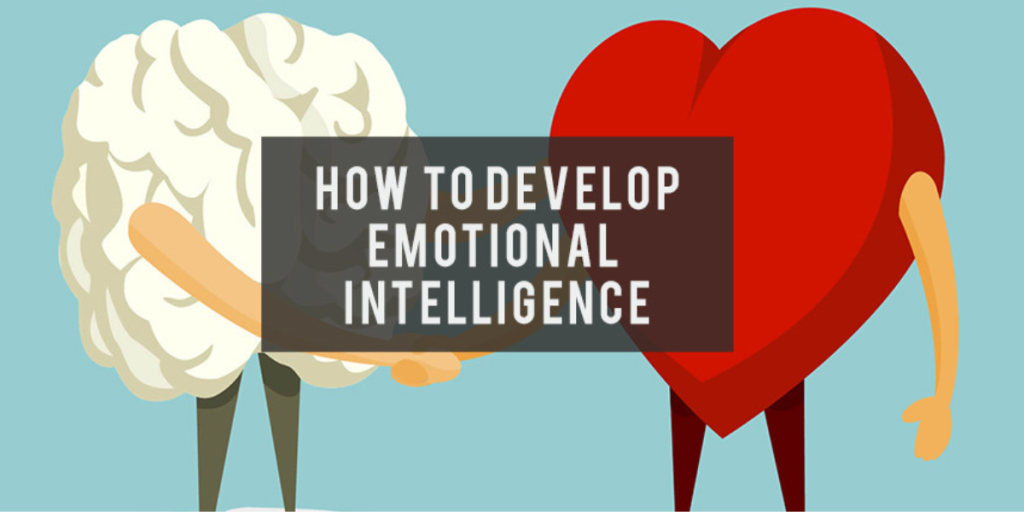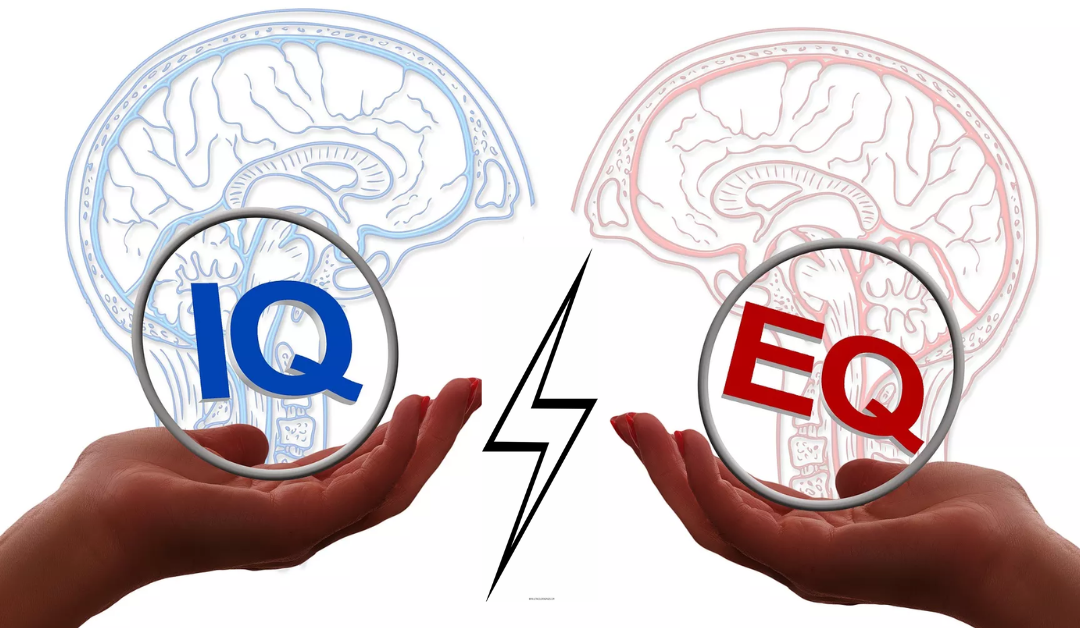When we think of success and achievements, intelligence often comes to mind. But did you know that 90% of high performers credit their achievements to something beyond IQ? It’s emotional intelligence (EQ)—the ability to understand, navigate, and improve your emotions and the emotions of others around you building healthier relationships, strengthening bonds and Mastering emotions for better connections. Here EQ is over IQ.
Imagine this: You’re at work, and a teammate criticizes your idea. How do you respond? Or at home, your partner seems upset, but you don’t know why. Or you don’t know to handle clashes in a friend circle. Have you ever had a disagreement that spiraled out of control over a simple misunderstanding? Or found yourself at a loss for words when a loved one needed your support? These everyday challenges highlight the gaps emotional intelligence can fill. It is the skill that helps us navigate these moments with empathy and clarity, building stronger, healthier connections along the way.
What Is Emotional Intelligence ( EQ)?
Emotional Intelligence is your ability to recognize, understand, and regulate your emotions while thoughtful with others. It’s the key to navigating life’s emotional landscape and maintaining harmony in relationships. Unlike IQ, which focuses on problem-solving and logics, EQ is about people skills, empathy and understanding. And its benefits extend far beyond the workplace—it touches every part of life. Psychologist Daniel Goleman, who popularized EQ, breaks it down into five key components:
- Self-Awareness: Recognizing your own emotions and how they affect your behavior. Noticing you’re irritable and realizing it’s due to lack of sleep, not because someone annoyed you.
- Self-Regulation: Controlling impulsive reactions and managing stress effectively. Staying calm during an argument instead of shouting.
- Empathy: Understanding and sharing the feelings of others. Comforting a friend who’s upset, even if you don’t fully relate to their situation.
- Social Skills: Building and maintaining healthy relationships. Making others seen and heard.
- Motivation: Driving yourself to achieve goals while staying positive. Despite setbacks and obstacles, you still give it a go.
Think about the last time someone truly understood what you were feeling—it probably made you feel seen, valued, and cared for. That’s the power of emotional intelligence.

What Makes EQ So Powerful?
Have you ever felt like your emotions took over in an argument, only to regret your words later? Or struggled to understand why a loved one reacted the way they did? That’s where emotional intelligence comes in—it helps you navigate these moments with clarity and compassion. Emotional intelligence is like the glue that holds our relationships together. When you pause to understand someone’s feelings instead of rushing to respond, you create a safe space for trust to grow. That’s the magic of emotional intelligence. Leaders with high EQ excel at managing teams, resolving conflicts, and inspiring others because they understand others’ emotions and treat them accordingly. Teams with strong EQ collaborate better and create more innovative solutions. If you can navigate your emotions in a better way, you will save yourself from unnecessary stress and anxiety. EQ promotes good mental health. IQ might make you anxious to communicate your thoughts thinking others might not understand you.
Why EQ matters in Relationships?
Emotional intelligence is like the glue that holds our relationships together. It’s is the secret ingredient behind successful relationships, whether with friends, family, colleagues, or romantic partners. When you’re emotionally intelligent, you’re more likely to listen actively, respond thoughtfully, and express yourself clearly. For example: Instead of saying, “You never help around the house,” you could say, “I feel overwhelmed and would appreciate your help.” This avoids blame and opens the door for collaboration. And EQ allows you to manage emotions during conflicts, making it easier to find solutions. Instead of yelling back during an argument, pausing to cool off and then addressing the issue calmly and making someone feel deeply supported when they’re struggling—that’s the impact EQ can have on your connections. Logics don’t build relationships.

Building EQ: Steps Toward Building Healthier Relationships
The beauty of EQ lies in its availability—it’s a skill anyone can develop with consistent effort. It isn’t just a buzzword; it’s a life-changing tool that can transform how you connect with others. Start small: observe your emotions, practice empathy, and listen actively. The results will surprise you. Start with these practical steps:
- Learn to pause before reacting. Count to 10 or take deep breaths when emotions run high. Practice techniques like mindfulness or meditation to stay grounded in the present moment.
- Build empathy. Imagine yourself in the other person’s shoes to better understand their perspective.
- Ask open ended questions to the one you feel isn’t in a good state like “How are you feeling about this?” Humans crave to be heard so listen without interrupting or making a judgement in your mind.
- Rather than misunderstanding, express your words clearly and respectfully. Rather than saying You’re never around!” politely say “I feel lonely and would love to spend more time with you.”
- Manage your emotions while having a conversation.
- Practice gratitude daily to shift your focus to positive thinking.
- View setbacks as opportunities to grow. If someone criticize you, instead of dwelling, consider what you can learn from it.
- If your partner forgets something important, rather than thinking logically that they might not be the right person for you, saying, “You never care about anything!” You express your feelings calmly and say It hurt when you forgot; it’s important to me”. This will make them think about their actions.
Start small, stay consistent, and watch how the quality of your connection’s soars.
Why EQ Matters More Than Ever
In a world where technology often overshadows human connection, emotional intelligence is the bridge that keeps us together. Whether it’s a heartfelt conversation, a thoughtful apology, or simply understanding someone’s silence, EQ has the power to strengthen bonds and heal relationships. Parents understanding their child’s emotions can strengthen their relationship. Instead of shouting or getting angry, you should listen to your child. It resolves all the conflicts when they feel themselves heard and their bond with you grows deeper than ever. The best part? It’s never too late to start. By investing in your EQ, you’re not just improving your own life—you’re creating a ripple effect that touches everyone around you.

EQ over IQ: The Game-Changer in building healthier relationships
Your IQ might open doors, but it’s your EQ that keeps them open. So why not start today? Practice empathy, listen more, and reflect on your emotions. The relationships you build will thank you for it. Your relationship either social or personal cant be run with logics. We as humans share emotions and knowing how to navigate emotions you can be a better human being. We want to heard not judged. Your IQ forces you to analyze them, but your EQ tells you to understand and then decide what to do, they are also human. Because when it comes to life’s most meaningful connections, emotional intelligence will always win over intellect.
Emotional intelligence is a journey, not a destination—and we’d love for you to be part of it! At Mind Canvas, we’re all about creating a community where we can grow and thrive together. Your voice matters, and by sharing your experiences, you might just inspire someone else to take the first step toward stronger, healthier relationships. We offer resources, workshops, day to day tasks to build better EQ and one-on-one coaching with our experienced psychologist team to help you enhance self-awareness, manage emotions, and build stronger connections. Let’s start the conversation—drop your thoughts below and join us in building a more emotionally intelligent world!

